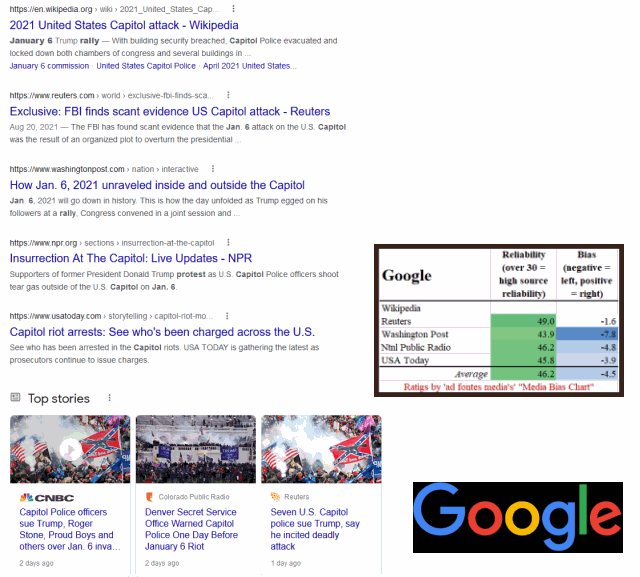When you conduct a search of the web, you probably hope to get ‘good’ results. Many of the major search engines keep track of the links you click on, and then tailor your future searches toward those sites you like. Now, we have a major search engine who claims to not track you, nor tailor the results based on your history. I compared results from Google and from Duck Duck Go and present the results below.
I conducted a search for ‘January 6 capital protest.’ Below are the results of my search
Ratings
I used ad fontes media’s Interactive Media Bias Chart® to compare the ‘reliability’ and ‘bias’ of the web pages listed in the results. These categories are described below:
Reliability
Scale rating is from 0 to 64, with high values being more reliable and low values misleading or inaccurate info.
- Google results are a 46.2, or “Complex analysis or mix of fact reporting and analysis.”
- Duck Duck Go is 36.0, or “Analysis or high variation in reliability”
Bias
Scale rating is -42 (left wing) to +42 (right wing); in which around +/- 12 is where skewing in the bias begins to appear. Both average results tend to show some skewing, but not significant.
- Google results have a -4.5 average bias rating (negative is ‘left,’ which matches my politics, so no surprise there).
- Duck Duck Go has a 8.0 average bias rating,
Image search
I didn’t analyze the sources of the images, but here are the results for image search with the same string.


Sources
If you want to submit your own results, take a screenshot from Google or your favorite search engine and submit it below. Use the same search term, January 6 capitol protest.



